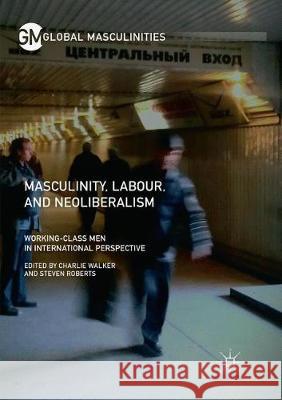Masculinity, Labour, and Neoliberalism: Working-Class Men in International Perspective » książka
topmenu
Masculinity, Labour, and Neoliberalism: Working-Class Men in International Perspective
ISBN-13: 9783319874906 / Angielski / Miękka / 2018 / 338 str.
Kategorie:
Kategorie BISAC:
Wydawca:
Palgrave MacMillan
Seria wydawnicza:
Język:
Angielski
ISBN-13:
9783319874906
Rok wydania:
2018
Wydanie:
Softcover Repri
Ilość stron:
338
Oprawa:
Miękka
Wolumenów:
01











